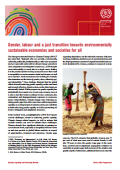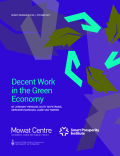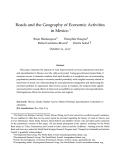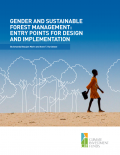


This paper estimates the impacts of road improvements on local employment structure and specialization in Mexico over the 1985-2016 period. Using geo-referenced panel data, it measures access to domestic markets from each locality as a weighted sum of surrounding populations (market access) or incomes (market potential), with weights inversely related to travel time or travel cost. Instrumenting for road placement endogeneity and addressing the recursion problem in regressions that involve access to markets, the analysis finds significant and positive causal effects of improved accessibility on employment and specialization. Heterogeneous effects are found across sectors and regions.

Climate change is relevant to virtually all other SDGs, including Goal 8 on decent work and economic growth. Uncontrolled climate change will not only compromise the ability of countries to achieve this goal, but could reverse gains in economic prosperity, social progress and poverty reduction. Economic sectors particularly vulnerable, such as agriculture, are among the biggest employers. Besides, risks tend to be greater for workers and communities already in situations of vulnerability, including workers in the informal economy, indigenous and tribal peoples, migrant workers, women and youth.
